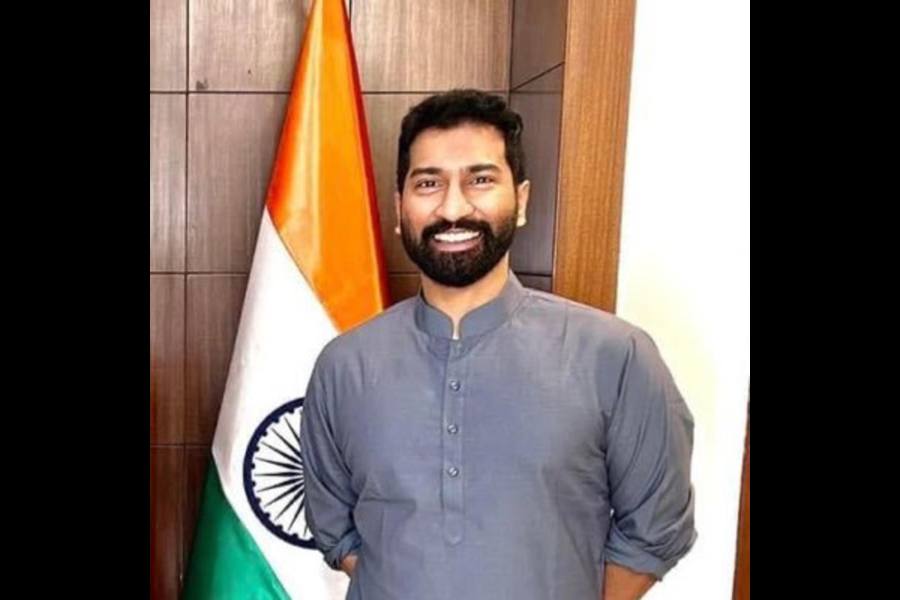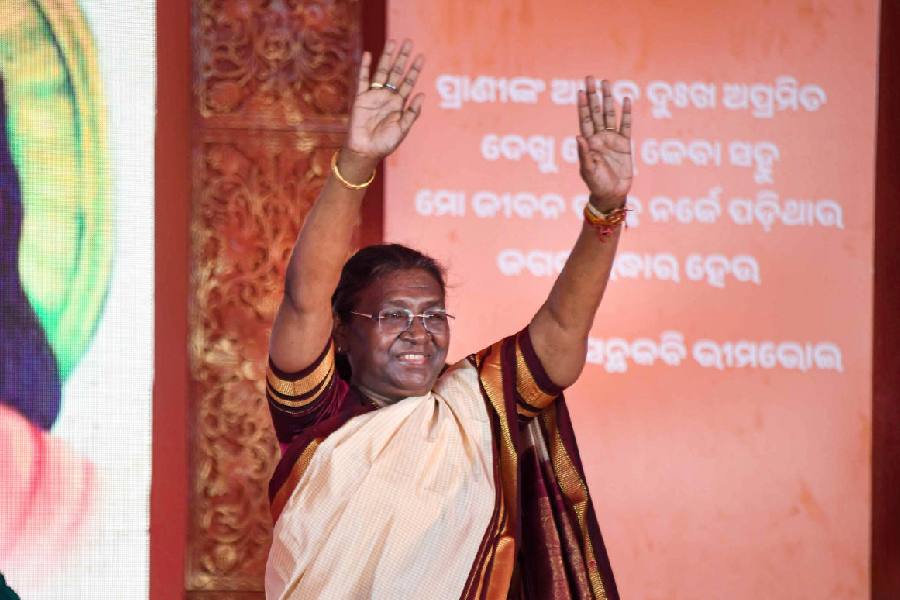Staunch loyalties
Election season is always rife with political rumours and this one is no different. The question that is foremost on the minds of political pundits at the moment is whether the president, Droupadi Murmu, played a role in the selection of the candidate from the Mayurbhanj Lok Sabha seat. The central leadership of the Bharatiya Janata Party has picked a low-profile leader and first-time member of the legislative assembly from Rairangpur, Naba Charan Majhi, for the prestigious Mayurbhanj Lok Sabha seat, replacing the Union minister, Bishweswar Tudu. Majhi, a staunch supporter of Murmu, had worked with her when she was the vice-chairman of the Rairangpur Notified Area Council in the 1990s. Murmu’s native village falls under the Rairangpur assembly constituency and she had won the Rairangpur assembly seat twice in a row, in 2000 and 2009, respectively. Besides Majhi, another staunch supporter of Murmu, the Padma Shri awardee Santhali author, Damayanti Beshra, has joined the saffron party on Thursday in New Delhi. There is talk that she, too, would be given a ticket from one of the assembly seats in Mayurbhanj. It is thus being conjectured that Murmu always helps those who remain loyal to her.
Family politics
Anil K Antony, son of the former defence minister and Congress veteran, AK Antony, had been confident that his father would not be able to sway voters against him. Anil, the BJP candidate from Kerala’s Pathanamthitta, had left his father in tears by joining the saffron party in April 2023. He was sure that no matter who campaigns against him, they would not be able to match the stature of the prime minister, Narendra Modi. But once he realised that his father could indeed campaign against him on behalf of the Congress, he was not so sure about this fact anymore.

Anil thus quickly corrected himself by saying that Antony Senior was a retired politician and that he had been alluding to other leaders and not his father.
Collision course
The newly-elected Jawaharlal Nehru University Students’ Union is set for a collision path with the administration after its office bearers were not invited to a meeting of the Academic Council. The Left retained its majority in the union and an Ambedkarite group won the post of the general-secretary, defeating the RSS-backed Akhil Bharatiya Vidyarthi Parishad. The administration, though, is counting on a possible legal challenge to the polls from a Left-candidate who was disqualified on the day of polling.
Sweet revenge
In the meantime, an ex-JNUSU office bearer, Kanhaiya Kumar, is creating a storm elsewhere. The Congress wanted to field Kanhaiya from Begusarai in the Lok Sabha polls. But the Communist Party of India pipped it to the post. Its gen-sec, D Raja, rushed to Patna and announced a candidate from Begusarai. This stumped the Congress because the seat sharing deal was yet to be finalised. But Raja said that Rashtriya Janata Dal chief, Lalu Prasad, had agreed to it. The seat later went to the CPI kitty when the constituencies were allocated to the partners of the Opposition alliance. A senior CPI source pointed out that though the party wanted to contest from Begusarai, it hurried with the announcement not only to pre-empt the Congress’s move but also to teach Kanhaiya a lesson. He had contested the 2019 parliamentary polls as the CPI candidate only to ditch it later and join the Congress. The Left source pointed out that it was a sweet and well-timed revenge.
Delayed recognition
The recently-released Hindi film, Ae Watan Mere Watan , on the short-lived secret Congress Radio of 1942 has won praise for publicising a relatively obscure achievement of the freedom struggle. Its protagonists, Usha Mehta and Ram Manohar Lohia, played by Sara Ali Khan and Emraan Hashmi, respectively, are being compared to V.D. Savarkar of the Rashtriya Swayamsevak Sangh and the loyalist role that he had played during the raj . But Savarkar, who died in 1966, was recognised with a postage stamp by the Congress government in 1970, while Lohia, who died in 1967, got a stamp with his visage only under the Janata government in 1977 and Mehta, who led the programme, was recognised with a Padma Vibhushan by the Janata Dal government as late as 1998.
Thirsty business
Bengaluru’s water woes are an opportunity for neighbouring Kerala. The Left-ruled Kerala is looking to replicate Bengaluru’s success with the start-up ecosystem. The Kerala industries minister, P Rajeev, has now begun luring information technology behemoths from India’s Silicon Valley to water-abundant Kerala, which, he reminded, has 44 rivers and sufficient water sources to quench the thirst of tech companies.











